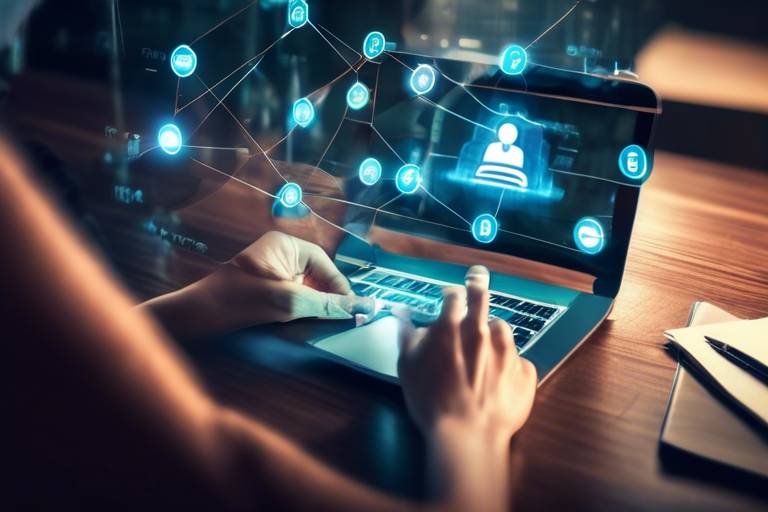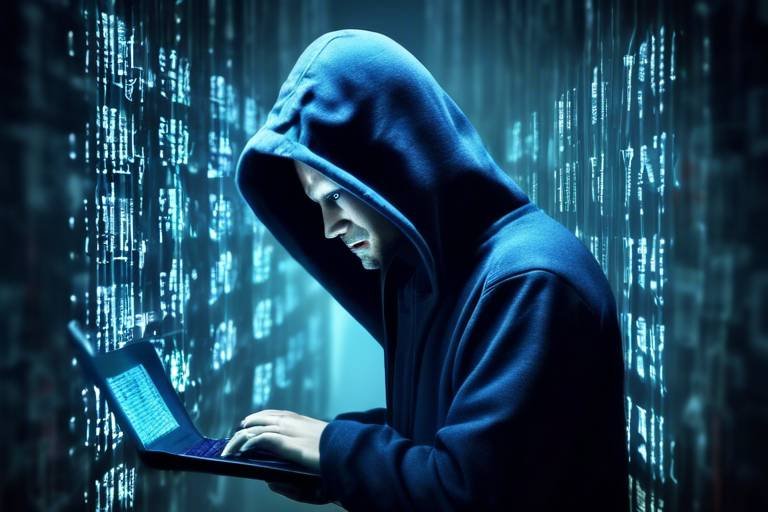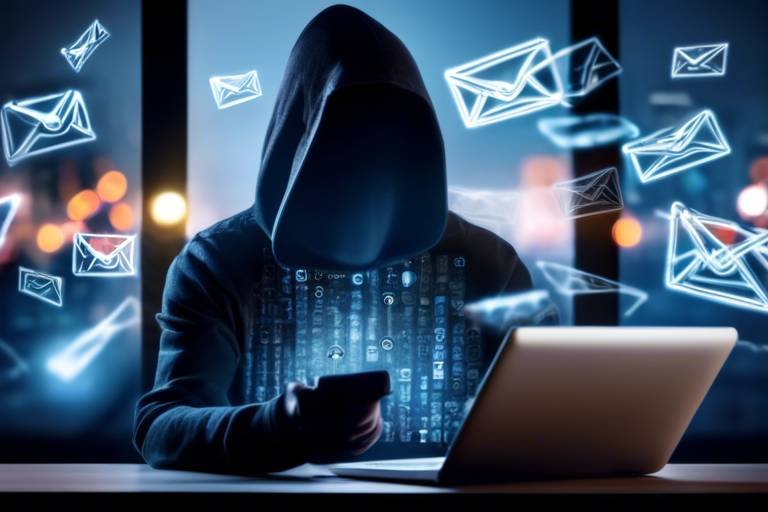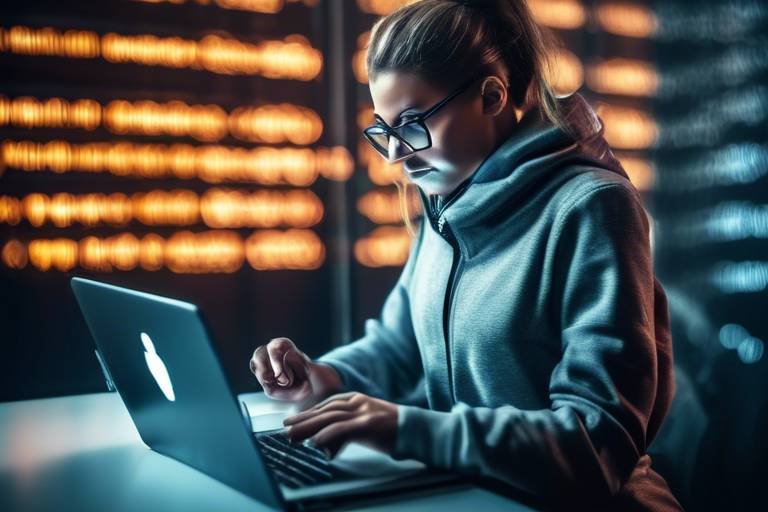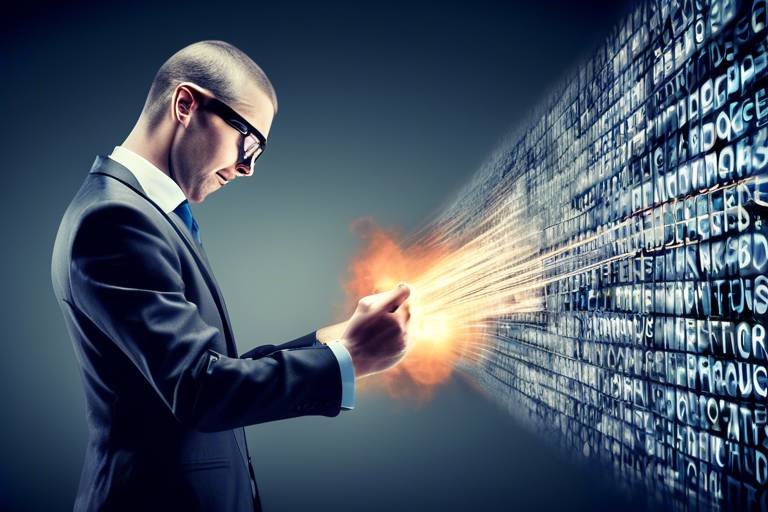Cybersecurity in the Hospitality Industry
The hospitality industry has become a prime target for cybercriminals, making cybersecurity more critical than ever. With the increasing reliance on technology for operations and customer service, hotels and resorts must prioritize the protection of sensitive data. Imagine walking into a luxurious hotel, only to find out that your personal information has been compromised. This not only affects guests but can also lead to devastating financial losses and a tarnished reputation for the business. As we delve into this article, we will explore the essential aspects of cybersecurity in the hospitality sector, from understanding its importance to identifying common threats and implementing best practices.
Understanding the significance of cybersecurity in the hospitality industry is vital for protecting customer data, maintaining trust, and ensuring compliance with regulations. In this digital age, guests expect their personal information to be handled with the utmost care. A single data breach can lead to a loss of customer confidence, which is not easily regained. Furthermore, the hospitality sector is heavily regulated, with strict guidelines in place to protect customer data. Failing to comply with these regulations can result in hefty fines and legal repercussions, making it imperative for hotels to invest in robust cybersecurity measures. Ultimately, a strong cybersecurity posture not only safeguards sensitive information but also fortifies the business's reputation and financial stability.
Hotels face various cyber threats, including phishing attacks, ransomware, and data breaches. Recognizing these risks is essential for developing effective strategies to mitigate potential damage and protect sensitive information. For instance, phishing attacks often trick employees or guests into revealing confidential information, while ransomware can lock down critical systems, demanding a ransom for their release. Understanding these threats is the first step in crafting a comprehensive cybersecurity strategy.
Phishing attacks target hotel employees and guests alike, often leading to unauthorized access to systems and sensitive data. These scams can come in the form of deceptive emails or messages that appear legitimate, making it easy for unsuspecting individuals to fall victim. Awareness and training can significantly reduce the risk of falling victim to these scams. By educating staff about the signs of phishing attempts, hotels can create a culture of vigilance and reduce their vulnerability.
Identifying phishing attempts is crucial for preventing data breaches. Employees should be trained to spot suspicious emails and messages that may compromise the hotel's cybersecurity. Common signs include
- Unexpected requests for sensitive information
- Generic greetings instead of personalized messages
- Urgent language prompting immediate action
- Links that lead to unfamiliar or misspelled websites
Implementing advanced email security measures, such as spam filters and authentication protocols, can help mitigate the risk of phishing attacks and protect sensitive information from cybercriminals. These tools can analyze incoming emails for suspicious content and block potentially harmful messages before they reach employees' inboxes. Additionally, establishing a clear protocol for reporting suspicious emails can further enhance the hotel's security posture.
Ransomware poses a significant threat to the hospitality industry, as it can lock down critical systems. Imagine arriving at a hotel only to find that the front desk cannot check you in due to a ransomware attack. Understanding how to prevent and respond to ransomware attacks is essential for maintaining operational continuity. Regular backups, employee training, and the use of advanced security software are all crucial components of a solid defense against these types of threats.
Implementing best practices for cybersecurity is crucial for hotels to protect their digital assets. This includes regular software updates, employee training, and robust data encryption methods to secure sensitive information. Each of these elements plays a vital role in creating a comprehensive cybersecurity strategy that can withstand the evolving landscape of cyber threats.
Regular training sessions for employees on cybersecurity best practices can significantly reduce the risk of breaches, ensuring that staff are aware of potential threats and how to respond effectively. Training should not be a one-time event; instead, it should be an ongoing process that adapts to new threats and technologies.
Utilizing strong data encryption techniques is essential for protecting sensitive customer information, making it unreadable to unauthorized users and safeguarding the hotel's reputation and compliance with regulations. Encryption acts as a shield, ensuring that even if data is intercepted, it remains secure and unusable by cybercriminals.
Emerging technologies play a pivotal role in enhancing cybersecurity measures in the hospitality industry, from AI-driven threat detection to blockchain for secure transactions, offering innovative solutions to combat cyber threats. These technologies not only improve security but also streamline operations and enhance guest experiences.
AI and machine learning technologies can analyze vast amounts of data to identify unusual patterns and potential threats, allowing hotels to respond proactively to cyber incidents and enhance their overall security posture. By leveraging these technologies, hotels can stay one step ahead of cybercriminals, ensuring a safer environment for their guests.
Blockchain technology offers a secure method for processing transactions, ensuring that sensitive customer data remains protected from cyber threats while improving transparency and trust in the hospitality sector. By utilizing blockchain, hotels can create a more secure and efficient transaction process, reducing the risk of fraud and enhancing customer confidence.
Understanding and adhering to regulatory compliance is critical for hotels to avoid penalties and protect customer data. This section discusses key regulations and their implications for cybersecurity practices in the industry. Compliance not only protects customers but also reinforces the hotel's commitment to data security.
GDPR sets strict guidelines for data protection in the EU, requiring hotels to implement robust cybersecurity measures to safeguard personal data and avoid significant fines for non-compliance. This regulation emphasizes the importance of transparency and accountability in handling customer information, making it essential for hotels to prioritize data protection.
Compliance with PCI DSS is essential for hotels handling credit card transactions, ensuring that they implement necessary security measures to protect customers' financial information from breaches and fraud. Adhering to these standards not only protects the hotel from legal repercussions but also builds trust with guests who expect their financial data to be secure.
Q: Why is cybersecurity important in the hospitality industry?
A: Cybersecurity is crucial in hospitality to protect sensitive customer data, maintain trust, and ensure compliance with regulations, ultimately safeguarding the business's reputation and financial stability.
Q: What are common cyber threats faced by hotels?
A: Common threats include phishing attacks, ransomware, and data breaches, which can lead to unauthorized access to sensitive information and significant operational disruptions.
Q: How can hotels protect themselves from phishing attacks?
A: Hotels can protect themselves by training employees to recognize phishing attempts, implementing email security measures, and fostering a culture of vigilance.
Q: What role does technology play in enhancing cybersecurity?
A: Emerging technologies like AI and blockchain can significantly improve cybersecurity by providing advanced threat detection and secure transaction processing.
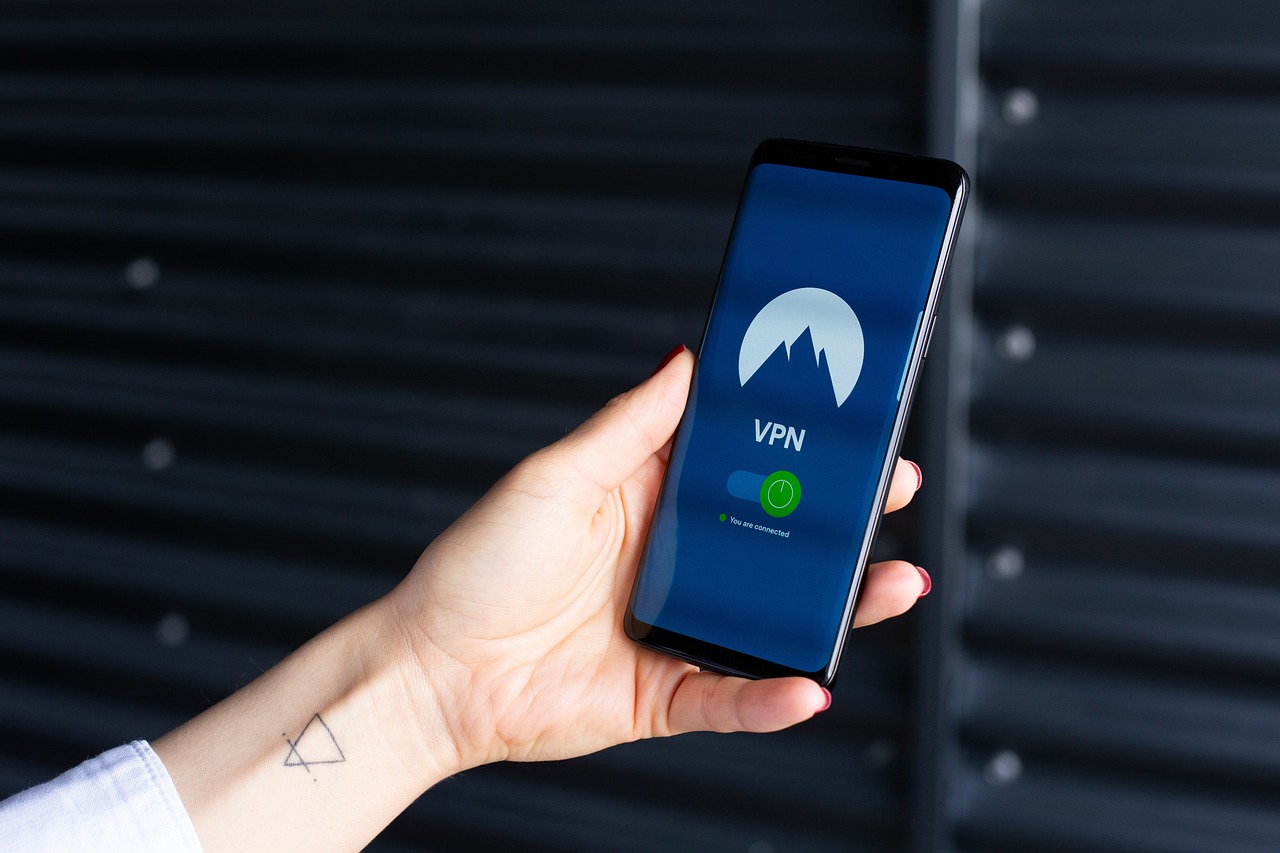
The Importance of Cybersecurity in Hospitality
Understanding the significance of cybersecurity in the hospitality industry is vital for protecting customer data, maintaining trust, and ensuring compliance with regulations. In a world where information travels at the speed of light, hotels must be vigilant in safeguarding sensitive information. Imagine walking into a hotel, checking in, and providing your personal details—only to find out later that your data was compromised. This scenario is not just a nightmare; it's a reality that many hotels face today.
The hospitality sector is uniquely positioned, as it handles a wealth of personal information from guests, including credit card details, identification, and travel itineraries. This makes it a prime target for cybercriminals who are constantly on the lookout for vulnerabilities to exploit. When a hotel experiences a data breach, the fallout can be catastrophic—not just for the guests but also for the hotel itself. The loss of customer trust can lead to a significant dip in business, and the financial implications can be severe, with costs associated with recovery, legal fees, and potential fines.
Moreover, regulatory compliance is a major factor that hotels must navigate. Failing to adhere to cybersecurity regulations can result in hefty fines and legal repercussions. For instance, regulations like the General Data Protection Regulation (GDPR) in Europe impose strict guidelines on how businesses should handle personal data. Hotels must ensure that they have robust cybersecurity measures in place to not only protect their guests but also to avoid penalties that could jeopardize their financial stability.
In addition to protecting data, effective cybersecurity practices can enhance a hotel's reputation. Guests today are more aware of cybersecurity issues and are likely to choose establishments that prioritize their safety. By implementing strong cybersecurity measures, hotels can market themselves as secure and trustworthy, attracting more customers. In this digital age, a hotel’s reputation can be built or broken by how well they protect their guests’ information.
To summarize, the importance of cybersecurity in hospitality cannot be overstated. It’s not just about protecting data; it’s about maintaining trust, ensuring compliance, and safeguarding the very essence of the business. Hotels that invest in robust cybersecurity measures will not only protect their guests but also secure their own future in an increasingly digital world.
| Key Aspects of Cybersecurity in Hospitality | Importance |
|---|---|
| Data Protection | Safeguards guest information from breaches |
| Compliance | Avoids penalties and legal issues |
| Trust | Builds customer confidence and loyalty |
| Reputation | Enhances brand image and marketability |

Common Cyber Threats Faced by Hotels
In the ever-evolving landscape of the hospitality industry, hotels are not just places for rest and relaxation; they are also prime targets for cybercriminals. With a vast amount of sensitive information at their fingertips, ranging from customer credit card details to personal identification, hotels face a myriad of cyber threats that can jeopardize both their operations and their reputation. Understanding these threats is the first step in crafting effective strategies to combat them. Let's delve into some of the most common cyber threats that hotels encounter.
One of the most prevalent threats is phishing attacks. These attacks often masquerade as legitimate communications, tricking hotel employees and guests into divulging sensitive information. Imagine receiving an email that looks like it’s from your bank or a trusted vendor, asking you to click a link and verify your account details. It’s alarming how easily one can be deceived. To combat this, hotels must implement rigorous training programs to educate staff on recognizing suspicious emails and messages.
Phishing attacks can lead to unauthorized access to critical systems, resulting in data breaches that could compromise customer information. It's not just the initial click that poses a risk; the aftermath can be devastating. Hotels can find themselves facing hefty fines, legal repercussions, and a loss of trust from their customers. Therefore, it's essential to foster a culture of awareness and vigilance among staff.
Identifying phishing attempts is crucial for preventing data breaches. Employees should be trained to spot red flags, such as:
- Unusual sender addresses
- Generic greetings instead of personalized messages
- Urgent requests for sensitive information
By instilling a keen sense of observation, hotels can significantly reduce the chances of falling victim to these scams.
Moreover, implementing advanced email security measures is vital. This includes using spam filters to catch suspicious emails before they reach inboxes and employing authentication protocols that verify the sender's identity. These steps can create an additional layer of defense against phishing attacks, helping to protect sensitive information from cybercriminals.
Another significant threat is ransomware. This malicious software can lock down critical systems, rendering them inoperable until a ransom is paid. For hotels, this can mean losing access to reservation systems, payment processing, and even guest services. The impact can be catastrophic, leading to operational downtime and financial losses. Understanding how to prevent and respond to ransomware attacks is essential for maintaining operational continuity.
Hotels should invest in robust backup solutions, ensuring that data is regularly backed up and can be restored without succumbing to the demands of cybercriminals. Additionally, maintaining up-to-date antivirus software and implementing firewall protections can help thwart ransomware attacks before they can inflict damage.
In conclusion, the hospitality industry must remain vigilant against these common cyber threats. By understanding the risks associated with phishing and ransomware, hotels can take proactive measures to safeguard their operations and protect their customers’ sensitive information. The stakes are high, and the cost of inaction can be devastating.
Q: What are the most common cyber threats faced by hotels?
A: Hotels commonly face phishing attacks, ransomware threats, and data breaches. Each of these can significantly impact operations and customer trust.
Q: How can hotels protect themselves from phishing attacks?
A: Hotels can protect themselves by training employees to recognize phishing attempts, implementing email security measures, and fostering a culture of awareness.
Q: What should hotels do in case of a ransomware attack?
A: Hotels should have a robust backup system in place, maintain up-to-date antivirus software, and have an incident response plan to mitigate the impact of ransomware attacks.
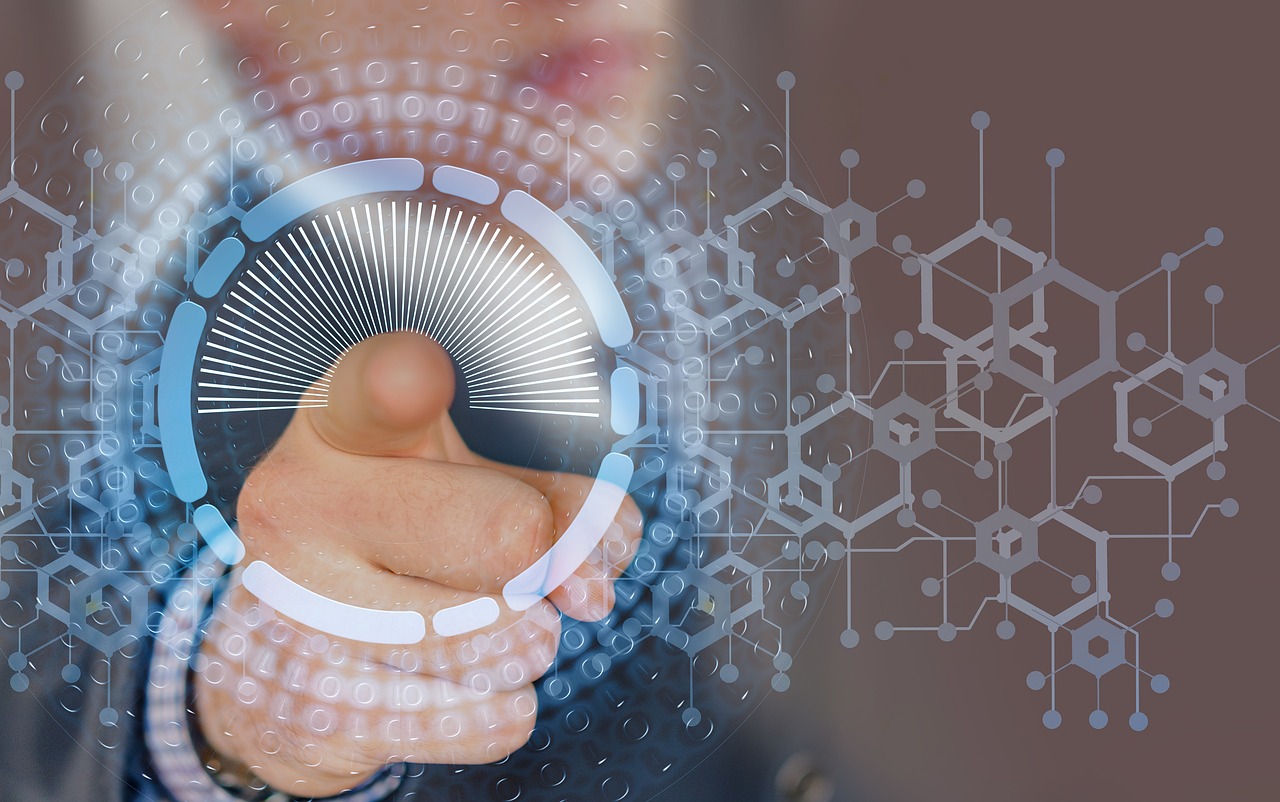
Phishing Attacks
Phishing attacks are like modern-day digital fishing expeditions, where cybercriminals dangle enticing bait in front of unsuspecting hotel employees and guests. These attacks can take various forms, such as fraudulent emails that appear to come from legitimate sources, or deceptive messages sent via social media. The goal? To trick the recipient into revealing sensitive information, such as login credentials or credit card details. Just imagine receiving an email that looks like it's from your hotel's IT department, asking you to verify your account. It seems harmless, right? But that could lead to unauthorized access to sensitive systems, putting the entire establishment at risk.
Recognizing phishing attempts is crucial for preventing data breaches. Employees should be trained to spot suspicious emails and messages that may compromise the hotel's cybersecurity. Here are some common signs of phishing attempts:
- Urgency: Messages that create a sense of urgency, urging immediate action.
- Generic Greetings: Emails that use greetings like "Dear Customer" instead of personalizing with your name.
- Suspicious Links: Hyperlinks that lead to unfamiliar websites, often disguised as legitimate ones.
- Grammatical Errors: Poorly written messages with spelling mistakes or awkward phrasing.
Implementing email security measures is another vital step in combating phishing attacks. Advanced email security solutions, such as spam filters and authentication protocols, can help mitigate the risk of these attacks. For instance, employing a two-factor authentication system adds an extra layer of security, making it more difficult for cybercriminals to gain unauthorized access even if they acquire login credentials. Additionally, regular software updates and patches can close vulnerabilities that attackers might exploit.
In the hospitality industry, where trust is paramount, the consequences of falling victim to phishing attacks can be devastating. Not only can it lead to financial loss, but it can also tarnish the hotel's reputation. Guests expect their information to be secure, and any breach can erode that trust. Therefore, fostering a culture of cybersecurity awareness among staff is not just a good practice; it's a necessity. Regular training sessions can empower employees to recognize threats and respond appropriately, ensuring that they become the first line of defense against phishing attacks.
Q: What should I do if I suspect a phishing attack?
A: If you suspect a phishing attack, do not click on any links or provide any information. Report the email or message to your IT department immediately.
Q: How can I educate my team about phishing attacks?
A: Regular training sessions, workshops, and simulated phishing exercises can help educate your team about recognizing and responding to phishing attempts.
Q: Are there specific tools to prevent phishing attacks?
A: Yes, tools such as advanced spam filters, email authentication protocols, and security awareness training platforms can significantly reduce the risk of phishing attacks.

Recognizing Phishing Attempts
Phishing attacks are like the modern-day equivalent of a wolf in sheep's clothing. They can appear harmless, even friendly, but their true intention is to deceive and exploit unsuspecting victims. In the hospitality industry, where customer trust is paramount, recognizing these attempts is essential to maintaining a secure environment. Often, phishing attempts come in the form of emails, messages, or even phone calls that seem legitimate but are designed to trick employees and guests into revealing sensitive information.
To effectively identify phishing attempts, hotel staff should be trained to look for several red flags. For instance, emails that contain:
- Generic Greetings: Phishing emails often use vague salutations like "Dear Customer" instead of addressing the recipient by name.
- Urgent Language: Messages that create a sense of urgency, such as threats of account suspension, are often used to pressure individuals into acting quickly without thinking.
- Suspicious Links: Hovering over links can reveal URLs that do not match the purported sender's website. Always double-check the URL before clicking.
- Attachments from Unknown Sources: Be wary of unexpected attachments, as they may contain malware designed to compromise hotel systems.
Additionally, employees should be encouraged to question any unexpected requests for sensitive information, especially if they come via email or phone. A good rule of thumb is to verify the request through a separate communication channel. For example, if someone claims to be from the IT department asking for login credentials, it’s wise to call the IT department directly to confirm the legitimacy of the request.
Establishing a culture of vigilance and open communication within the hotel can significantly reduce the risk of falling victim to phishing attacks. Regular training sessions and simulated phishing exercises can help keep employees alert and prepared. Remember, the cost of ignorance in cybersecurity can be much higher than the investment in training. By fostering an environment where staff feel empowered to report suspicious activities, hotels can create a robust defense against these deceptive tactics.
Q1: What is phishing?
Phishing is a cyber-attack method where attackers impersonate legitimate entities to trick individuals into providing sensitive information, such as passwords or credit card numbers.
Q2: How can I recognize a phishing email?
Look for generic greetings, urgent language, suspicious links, and unexpected attachments. Always verify requests for sensitive information through separate communication channels.
Q3: What should I do if I receive a phishing email?
Do not click on any links or download attachments. Report the email to your IT department and delete it immediately.
Q4: Can training really help prevent phishing attacks?
Absolutely! Regular training and awareness programs can significantly reduce the risk of employees falling victim to phishing scams by keeping them informed about the latest tactics used by cybercriminals.
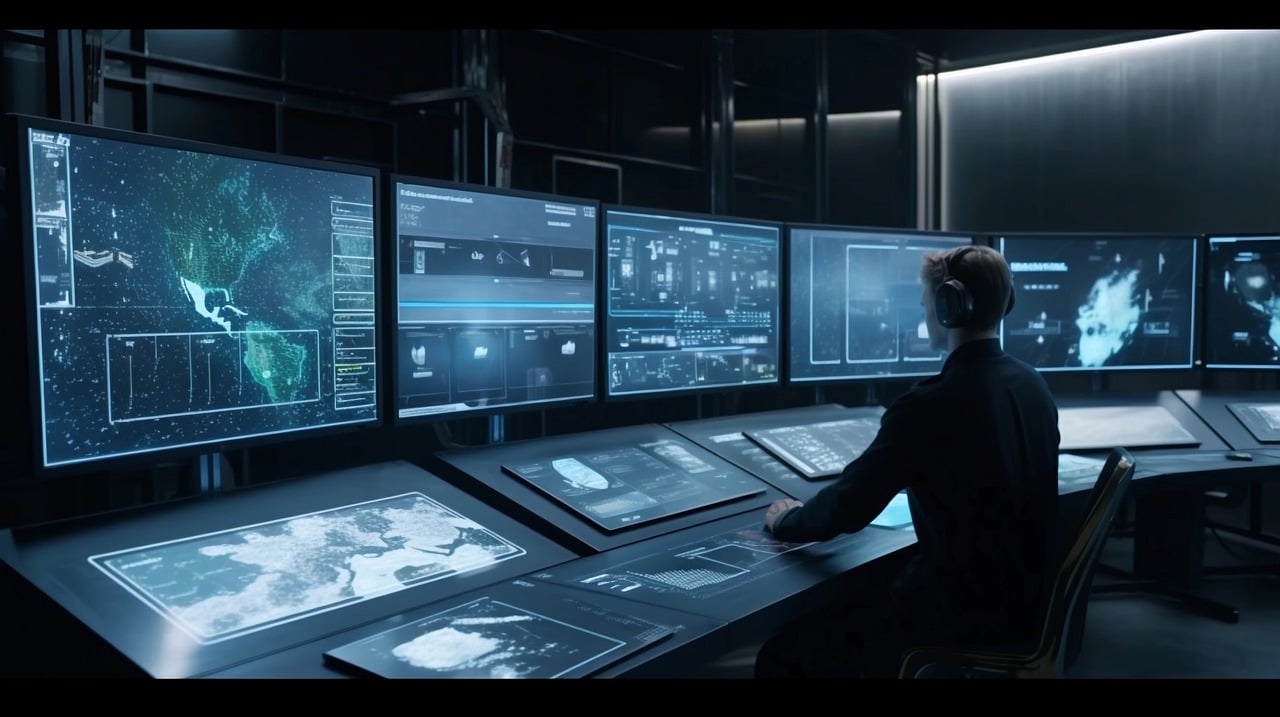
Implementing Email Security Measures
In today's digital landscape, where cyber threats loom large, implementing robust email security measures is not just a good practice; it's a necessity for hotels. With the hospitality industry being a prime target for cybercriminals, ensuring that email communications are secure can significantly mitigate risks associated with phishing and other malicious attacks. So, what can hotels do to fortify their email systems against these threats?
First and foremost, investing in advanced spam filters is essential. These filters can effectively block unsolicited and potentially harmful emails before they even reach employees' inboxes. By utilizing machine learning algorithms, modern spam filters can adapt and improve over time, learning to identify new threats as they emerge. This proactive approach can save hotels from the headaches associated with data breaches and unauthorized access.
Moreover, implementing authentication protocols such as SPF (Sender Policy Framework) and DKIM (DomainKeys Identified Mail) can add an extra layer of security. These protocols help verify that the emails received are indeed from legitimate sources, thus reducing the chances of falling prey to phishing scams. When employees know that their email system is fortified with these measures, they can focus more on their tasks without the constant worry of cyber threats.
It's also crucial to conduct regular security awareness training for all staff members. Training sessions should cover how to recognize suspicious emails, the importance of not clicking on unknown links, and the proper procedures for reporting potential threats. By fostering a culture of cybersecurity awareness, hotels can empower their employees to act as the first line of defense against cybercriminals.
Additionally, hotels should consider implementing two-factor authentication (2FA) for accessing email accounts. This extra step requires users to provide two forms of identification before accessing their accounts, making it significantly harder for unauthorized users to gain access, even if they have the password. With 2FA in place, hotel staff can feel more secure knowing that their email accounts are less likely to be compromised.
Lastly, regular audits of email security practices are vital. By evaluating the effectiveness of current measures and identifying potential weaknesses, hotels can adapt their strategies to meet evolving security challenges. This continuous improvement approach ensures that the hotel remains one step ahead of cyber threats.
In conclusion, implementing email security measures is a multifaceted approach that involves technology, training, and continuous evaluation. By prioritizing these measures, hotels not only protect their sensitive information but also build a resilient defense against the ever-evolving landscape of cyber threats.
- What are the most common email security threats hotels face? Hotels often encounter phishing attacks, spam, and malware through email communications.
- How can employees be trained to recognize phishing attempts? Regular training sessions and simulated phishing exercises can help employees identify and respond to suspicious emails.
- What is two-factor authentication, and why is it important? Two-factor authentication adds an extra layer of security by requiring two forms of verification to access email accounts, making unauthorized access more difficult.
- How often should hotels review their email security measures? Hotels should conduct regular audits, at least annually, to evaluate and update their email security practices.
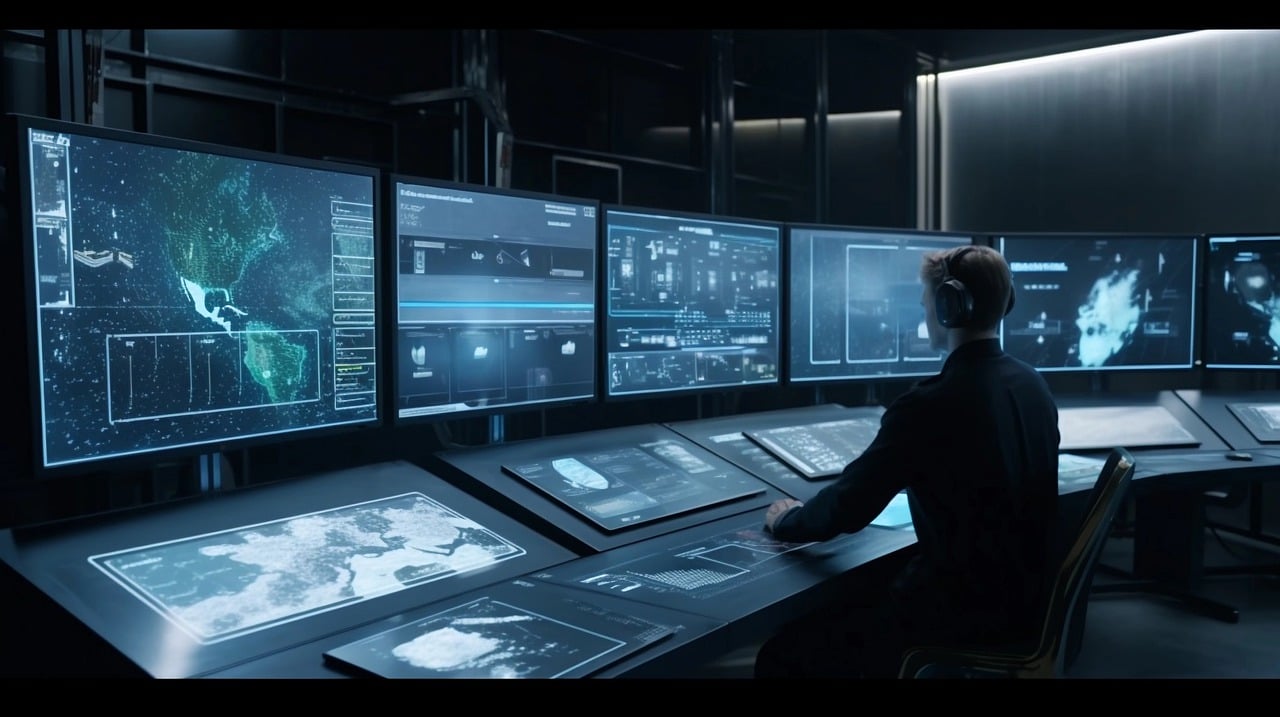
Ransomware Threats
This article explores the critical importance of cybersecurity within the hospitality sector, highlighting key challenges, best practices, and the impact of emerging technologies on safeguarding sensitive information.
Understanding the significance of cybersecurity in the hospitality industry is vital for protecting customer data, maintaining trust, and ensuring compliance with regulations, ultimately safeguarding the business's reputation and financial stability.
Hotels face various cyber threats, including phishing attacks, ransomware, and data breaches. Recognizing these risks is essential for developing effective strategies to mitigate potential damage and protect sensitive information.
Phishing attacks target hotel employees and guests alike, often leading to unauthorized access to systems and sensitive data. Awareness and training can significantly reduce the risk of falling victim to these scams.
Identifying phishing attempts is crucial for preventing data breaches. Employees should be trained to spot suspicious emails and messages that may compromise the hotel's cybersecurity.
Implementing advanced email security measures, such as spam filters and authentication protocols, can help mitigate the risk of phishing attacks and protect sensitive information from cybercriminals.
Ransomware poses a significant threat to the hospitality industry, as it can lock down critical systems and disrupt operations. Imagine arriving at your hotel only to find that the front desk can't check you in because their system has been hijacked! This scenario is not just a nightmare for hotel management; it can lead to a loss of revenue and trust among guests.
Understanding how to prevent and respond to ransomware attacks is essential for maintaining operational continuity. Ransomware typically infiltrates systems through phishing emails, malicious downloads, or vulnerabilities in software. Once inside, it encrypts files and demands a ransom for the decryption key. This situation can leave hotels in a precarious position, weighing the risks of paying the ransom versus losing critical data.
To safeguard against these threats, hotels can implement several strategies:
- Regular Backups: Ensure that data is regularly backed up and stored offline. This practice can significantly reduce the impact of ransomware, allowing hotels to restore systems without paying a ransom.
- Software Updates: Keeping software up to date is crucial. Many ransomware attacks exploit known vulnerabilities in outdated software.
- Access Controls: Limiting access to sensitive data can help minimize the potential damage from a ransomware attack. Only authorized personnel should have access to critical systems.
Moreover, having an incident response plan in place can make all the difference. This plan should outline specific steps to take in case of a ransomware attack, including communication strategies, roles and responsibilities, and recovery procedures. By being prepared, hotels can respond swiftly and effectively, minimizing downtime and protecting their reputation.
Implementing best practices for cybersecurity is crucial for hotels to protect their digital assets. This includes regular software updates, employee training, and robust data encryption methods to secure sensitive information.
Regular training sessions for employees on cybersecurity best practices can significantly reduce the risk of breaches, ensuring that staff are aware of potential threats and how to respond effectively.
Utilizing strong data encryption techniques is essential for protecting sensitive customer information, making it unreadable to unauthorized users and safeguarding the hotel's reputation and compliance with regulations.
Emerging technologies play a pivotal role in enhancing cybersecurity measures in the hospitality industry, from AI-driven threat detection to blockchain for secure transactions, offering innovative solutions to combat cyber threats.
AI and machine learning technologies can analyze vast amounts of data to identify unusual patterns and potential threats, allowing hotels to respond proactively to cyber incidents and enhance their overall security posture.
Blockchain technology offers a secure method for processing transactions, ensuring that sensitive customer data remains protected from cyber threats while improving transparency and trust in the hospitality sector.
Understanding and adhering to regulatory compliance is critical for hotels to avoid penalties and protect customer data. This section discusses key regulations and their implications for cybersecurity practices in the industry.
GDPR sets strict guidelines for data protection in the EU, requiring hotels to implement robust cybersecurity measures to safeguard personal data and avoid significant fines for non-compliance.
Compliance with PCI DSS is essential for hotels handling credit card transactions, ensuring that they implement necessary security measures to protect customers' financial information from breaches and fraud.
1. What is ransomware and how does it affect hotels?
Ransomware is a type of malicious software that encrypts files on a system, rendering them inaccessible until a ransom is paid. For hotels, this can disrupt operations, lead to data loss, and damage reputation.
2. How can hotels protect themselves from ransomware attacks?
Hotels can protect themselves by implementing regular data backups, keeping software updated, controlling access to sensitive data, and having an incident response plan in place.
3. What should a hotel do if it falls victim to a ransomware attack?
If a hotel is attacked, it should follow its incident response plan, notify law enforcement, assess the damage, and consider whether to pay the ransom while also working on restoring data from backups.

Best Practices for Cybersecurity in Hotels
When it comes to safeguarding sensitive information in the hospitality sector, implementing best practices for cybersecurity is not just an option; it's a necessity. Hotels are treasure troves of personal and financial data, making them prime targets for cybercriminals. By adopting a proactive approach, hotels can significantly reduce the risk of breaches and maintain the trust of their customers.
One of the cornerstones of effective cybersecurity is regular software updates. Just like you wouldn't drive a car with outdated brakes, operating systems and applications need to be kept up to date to patch vulnerabilities. Cyber threats are constantly evolving, and outdated software can leave doors wide open for attackers. Regularly scheduled updates should be part of the hotel's IT maintenance routine.
In addition to software updates, employee training and awareness play a crucial role in cybersecurity. Employees are often the first line of defense against cyber threats. Conducting regular training sessions helps staff recognize potential threats, such as phishing emails or suspicious links. Imagine your hotel as a castle; your employees are the guards. The better trained they are, the more secure your castle will be.
Furthermore, utilizing robust data encryption techniques is essential for protecting sensitive customer information. Encryption transforms readable data into an unreadable format, making it nearly impossible for unauthorized users to access it. This not only safeguards customer data but also helps hotels comply with various regulations. Think of encryption as a secret language; even if someone intercepts the message, they won't understand it without the key.
Another best practice involves implementing multi-factor authentication (MFA). MFA adds an extra layer of security by requiring users to provide two or more verification factors to gain access to sensitive systems. This could include something they know (like a password), something they have (like a smartphone), or something they are (like a fingerprint). By requiring multiple forms of identification, hotels can significantly reduce the risk of unauthorized access.
Alongside these practices, it's vital to have a comprehensive incident response plan. No matter how secure your systems are, there's always a possibility of a breach. Having a well-defined incident response plan ensures that your hotel can respond swiftly and effectively to any cybersecurity incidents. This plan should include clear roles and responsibilities, communication strategies, and recovery procedures. Think of it as having a fire drill; it prepares your team for the unexpected.
Moreover, hotels should regularly conduct security audits to assess their cybersecurity posture. These audits can help identify vulnerabilities and areas for improvement. By regularly evaluating security measures, hotels can stay one step ahead of cybercriminals. It's like a health check-up for your cybersecurity; you want to know where you stand to make necessary adjustments.
Finally, engaging with cybersecurity professionals for penetration testing can provide invaluable insights. Penetration testing involves simulating cyber attacks to identify weaknesses in your systems. This proactive approach allows hotels to fortify their defenses before an actual attack occurs. Consider it a friendly sparring match that prepares you for the real fight.
In conclusion, adopting best practices for cybersecurity in hotels is essential for protecting sensitive information and maintaining customer trust. By focusing on regular updates, employee training, data encryption, multi-factor authentication, incident response planning, security audits, and penetration testing, hotels can create a robust cybersecurity framework that not only protects their digital assets but also enhances their overall reputation in the hospitality industry.
- What is the most common cyber threat facing hotels? Phishing attacks are among the most prevalent threats, targeting both employees and guests.
- How often should hotels update their software? Hotels should aim to update their software regularly, ideally on a monthly basis, to ensure they are protected against the latest vulnerabilities.
- What is multi-factor authentication? Multi-factor authentication is a security measure that requires users to provide two or more verification factors to access sensitive systems, adding an extra layer of security.
- Why is employee training important for cybersecurity? Employees are often the first line of defense against cyber threats, and training helps them recognize and respond to potential security risks effectively.

Employee Training and Awareness
In the fast-paced world of hospitality, where customer experience is paramount, the role of employee training in cybersecurity cannot be overstated. Hotels are not just places where guests check in and out; they are treasure troves of sensitive information, from personal guest details to credit card numbers. This makes them prime targets for cybercriminals. Therefore, investing in comprehensive cybersecurity training for employees is essential. But what does this training entail, and why is it so vital?
First and foremost, it’s important to create a culture of cybersecurity awareness within the organization. Employees should understand that they are the first line of defense against cyber threats. Regular training sessions should be conducted to educate staff about the various types of cyber threats they may encounter, such as phishing emails, social engineering tactics, and malware. For instance, imagine a hotel receptionist receiving an email that appears to be from a trusted source, requesting sensitive information. Without proper training, the receptionist might unwittingly provide access to confidential data, leading to a data breach.
Moreover, training should not be a one-time event. It should be an ongoing process that evolves with the changing landscape of cybersecurity threats. This can include:
- Monthly workshops on identifying phishing attempts.
- Quarterly updates on the latest cybersecurity threats and trends.
- Simulated phishing attacks to test employees' awareness and response.
Additionally, hotels can enhance their training programs by incorporating real-life scenarios and interactive learning tools. For example, using role-playing exercises allows employees to practice responding to potential threats in a controlled environment. This hands-on approach not only makes the training more engaging but also reinforces the importance of vigilance in everyday tasks.
Furthermore, it’s essential to have a clear and accessible cybersecurity policy that outlines the responsibilities of each employee. This policy should include guidelines on how to handle sensitive information, report suspicious activities, and respond to potential breaches. When employees know what is expected of them, they are more likely to take cybersecurity seriously.
Finally, fostering an environment where employees feel comfortable discussing cybersecurity concerns can lead to a more secure workplace. Encourage staff to report any suspicious emails or activities without fear of repercussions. This transparency can help identify vulnerabilities before they are exploited by cybercriminals.
In conclusion, employee training and awareness are critical components of a robust cybersecurity strategy in the hospitality industry. By providing ongoing education and creating a culture of vigilance, hotels can significantly reduce the risk of cyber threats and protect both their guests and their business.
- Why is cybersecurity training important for hotel staff? Cybersecurity training equips staff with the knowledge to recognize and respond to potential threats, minimizing the risk of data breaches.
- How often should training be conducted? Regular training sessions should be held at least quarterly, with additional updates as new threats emerge.
- What should be included in a cybersecurity policy? A comprehensive policy should outline employee responsibilities, procedures for handling sensitive information, and steps for reporting suspicious activities.
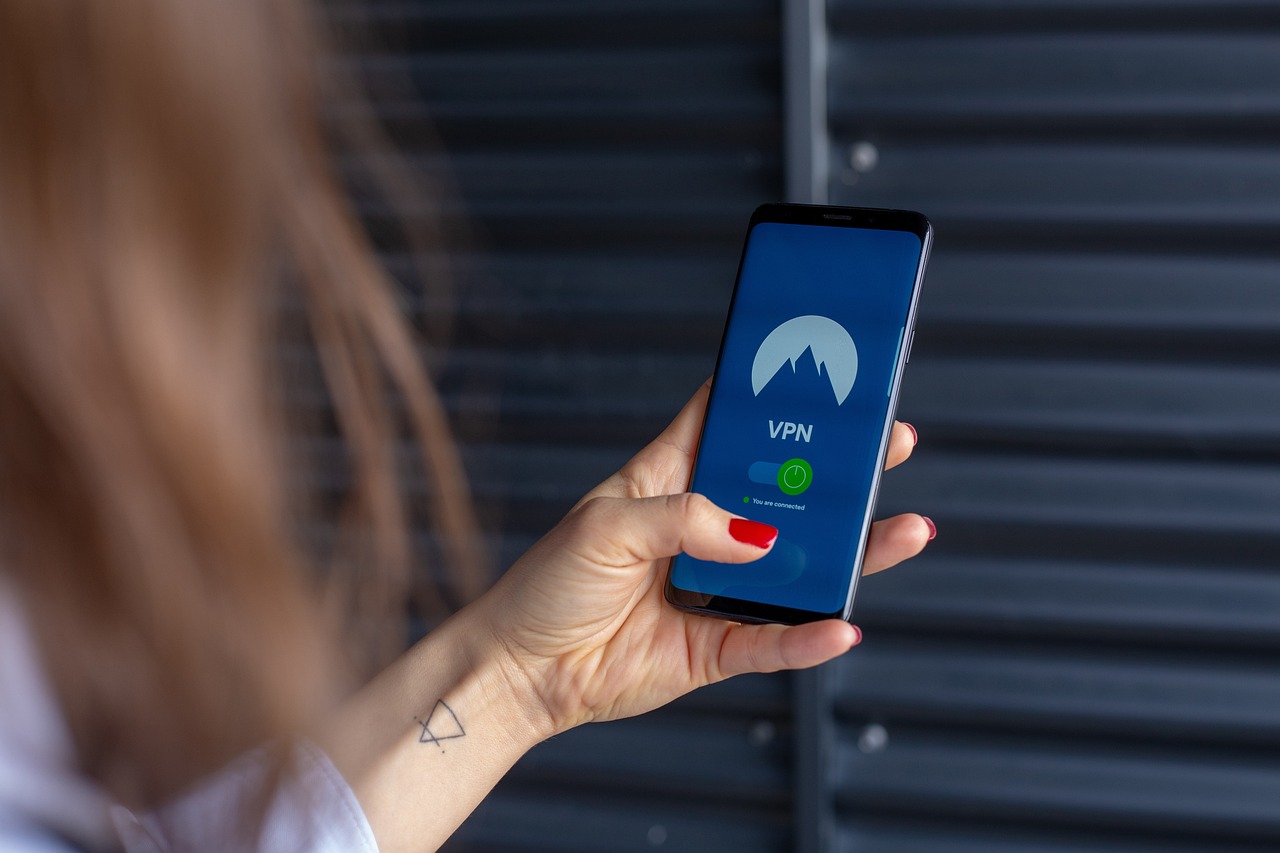
Data Encryption Techniques
In today's digital age, where data breaches can lead to catastrophic consequences, have become a cornerstone of cybersecurity in the hospitality industry. Encryption transforms sensitive information into a format that is unreadable to unauthorized users, effectively acting as a protective barrier against cyber threats. Imagine sending a locked suitcase to a friend; only they have the key. This is how encryption secures data, ensuring that even if it is intercepted, it remains inaccessible without the proper authorization.
There are several encryption methods that hotels can implement to safeguard their guests' personal and financial information. One of the most widely used techniques is Advanced Encryption Standard (AES). AES is a symmetric encryption algorithm that encrypts data in fixed block sizes, providing a robust level of security. For instance, a hotel might use AES to encrypt credit card information during transactions, ensuring that even if data is intercepted, it cannot be easily decrypted by cybercriminals.
Another popular technique is Transport Layer Security (TLS), which secures data transmitted over networks. TLS is essential for hotels that offer online booking systems or Wi-Fi services. By encrypting the data exchanged between the user's device and the hotel's server, TLS helps prevent eavesdropping and man-in-the-middle attacks. Think of it as a secure tunnel that protects your data while it travels across the internet.
Additionally, hotels should consider implementing end-to-end encryption for their communication channels. This ensures that messages are encrypted on the sender's device and only decrypted on the receiver's device, making it nearly impossible for anyone in between to access the content. This technique is particularly useful for protecting sensitive communications, such as guest inquiries or internal discussions about security protocols.
To further illustrate the importance of data encryption, consider the following table that highlights the key encryption methods and their applications in the hospitality sector:
| Encryption Method | Description | Application in Hospitality |
|---|---|---|
| AES | A symmetric encryption algorithm that secures data in fixed block sizes. | Encrypting credit card transactions and guest information. |
| TLS | A protocol that encrypts data transmitted over networks. | Securing online booking systems and Wi-Fi connections. |
| End-to-End Encryption | Encrypts messages on the sender's device and decrypts them on the receiver's device. | Protecting sensitive communications between guests and hotel staff. |
By utilizing these data encryption techniques, hotels can not only protect their guests' information but also enhance their overall cybersecurity posture. In an industry where trust is paramount, demonstrating a commitment to safeguarding sensitive data can significantly bolster a hotel's reputation. After all, guests are more likely to return to a hotel that prioritizes their privacy and security.
- What is data encryption?
Data encryption is the process of converting information into a code to prevent unauthorized access. - Why is encryption important in the hospitality industry?
Encryption protects sensitive customer information, such as credit card details and personal data, from cyber threats. - What are the common encryption methods used?
Common methods include Advanced Encryption Standard (AES), Transport Layer Security (TLS), and end-to-end encryption. - How often should hotels update their encryption protocols?
Hotels should regularly review and update their encryption protocols to keep up with evolving cyber threats.

The Role of Technology in Cybersecurity
In today's fast-paced digital world, the hospitality industry is increasingly reliant on technology to enhance guest experiences and streamline operations. However, this reliance also opens the door to various cyber threats, making it imperative for hotels to leverage technology to bolster their cybersecurity measures. Emerging technologies, such as artificial intelligence (AI) and blockchain, are not just buzzwords; they are game-changers in the fight against cybercrime. By integrating these technologies, hotels can not only protect sensitive information but also create a more secure environment for both guests and staff.
One of the most significant advancements in cybersecurity is the use of AI and machine learning. These technologies have the ability to analyze vast amounts of data in real time, identifying unusual patterns that may indicate a potential threat. For instance, if a hotel’s system detects an unusual spike in login attempts from a specific IP address, AI can flag this activity for further investigation. This proactive approach allows hotels to respond to cyber incidents before they escalate, significantly enhancing their overall security posture.
Moreover, AI can also automate routine security tasks, such as monitoring network traffic and scanning for vulnerabilities. This automation not only saves time but also ensures that cybersecurity measures are consistently applied across the board. Imagine having a virtual security guard that never sleeps—this is the power of AI in cybersecurity.
Another transformative technology in the realm of cybersecurity is blockchain. Known primarily for its role in cryptocurrency, blockchain technology offers a secure method for processing transactions, which is crucial in the hospitality industry. By utilizing blockchain, hotels can ensure that sensitive customer data, such as payment information, remains protected from cyber threats. Each transaction is recorded in a decentralized ledger, making it nearly impossible for hackers to alter or access sensitive data without detection.
Furthermore, blockchain enhances transparency and trust in the hospitality sector. Guests can have peace of mind knowing that their personal information is safeguarded through advanced cryptographic techniques. This level of security not only protects customers but also boosts the hotel’s reputation, leading to increased customer loyalty and trust.
To illustrate the impact of these technologies, consider the following table that highlights the benefits of AI and blockchain in enhancing cybersecurity within the hospitality industry:
| Technology | Benefits |
|---|---|
| AI and Machine Learning |
|
| Blockchain |
|
In conclusion, the role of technology in cybersecurity cannot be overstated. As hotels continue to embrace digital transformation, it is essential to adopt innovative technologies that not only protect sensitive information but also enhance operational efficiency. By investing in AI, machine learning, and blockchain, hotels can create a robust cybersecurity framework that ensures the safety of their guests and their business. The future of cybersecurity in the hospitality industry is bright, and it is powered by technology.
Q: How can hotels protect themselves from cyber threats?
A: Hotels can implement a combination of employee training, regular software updates, and advanced cybersecurity technologies such as AI and blockchain to safeguard their systems.
Q: What is the importance of data encryption in hotels?
A: Data encryption is crucial for protecting sensitive customer information, ensuring that even if data is intercepted, it remains unreadable to unauthorized users.
Q: How does AI contribute to cybersecurity?
A: AI enhances cybersecurity by providing real-time threat detection, automating security tasks, and analyzing data to identify potential vulnerabilities.
Q: What role does blockchain play in hospitality?
A: Blockchain secures transactions and protects customer data through decentralized storage, enhancing trust and transparency in the hospitality sector.

AI and Machine Learning
In today's fast-paced digital world, are revolutionizing how the hospitality industry approaches cybersecurity. Imagine having a vigilant guard who never sleeps, constantly watching over your sensitive data and systems. That's precisely what AI can do for hotels. By analyzing vast amounts of data at lightning speed, these technologies can identify unusual patterns and potential threats that might go unnoticed by human eyes.
For instance, AI can monitor network traffic in real-time, flagging any anomalies that could indicate a cyber attack. This proactive approach allows hotels to respond to threats before they escalate into significant breaches. It's like having a security system that not only alerts you of a break-in but also predicts when and where it might happen. With machine learning algorithms, the system continuously improves its ability to detect threats by learning from past incidents, making it increasingly effective over time.
Moreover, the integration of AI in cybersecurity can streamline incident response. When a potential threat is detected, AI can automatically initiate predefined responses, such as isolating affected systems or alerting IT personnel. This rapid response is crucial in minimizing downtime and protecting customer data. In a sector where customer trust is paramount, the ability to swiftly address security issues can make all the difference.
Furthermore, the use of AI extends beyond just threat detection. Hotels can leverage machine learning to enhance their overall security posture by analyzing employee behavior and identifying risky practices. For example, if an employee frequently accesses sensitive data outside of normal working hours, the system can flag this activity for further investigation. This kind of behavioral analysis not only helps in identifying potential insider threats but also reinforces a culture of security awareness among staff.
However, while AI and machine learning present exciting opportunities for enhancing cybersecurity, they are not without challenges. As these technologies evolve, so do the tactics employed by cybercriminals. Therefore, it's essential for hotels to stay ahead of the curve by continuously updating their cybersecurity strategies and investing in advanced technologies. In this ever-changing landscape, the combination of human insight and machine intelligence can create a formidable defense against cyber threats.
In conclusion, the integration of into the cybersecurity framework of hotels not only enhances threat detection and response but also fosters a proactive security culture. As the hospitality industry continues to embrace digital transformation, leveraging these advanced technologies will be crucial for safeguarding sensitive information and maintaining customer trust.
- What is AI in cybersecurity? AI in cybersecurity refers to the use of artificial intelligence technologies to detect, prevent, and respond to cyber threats.
- How does machine learning improve cybersecurity? Machine learning improves cybersecurity by analyzing data patterns to identify anomalies that may indicate a security threat, allowing for quicker responses.
- Can AI completely eliminate cyber threats? While AI significantly enhances cybersecurity measures, it cannot completely eliminate all threats. Continuous monitoring and human oversight are still essential.
- What are the challenges of implementing AI in cybersecurity? Challenges include the evolving tactics of cybercriminals, the need for constant updates, and the potential for AI systems to be manipulated.
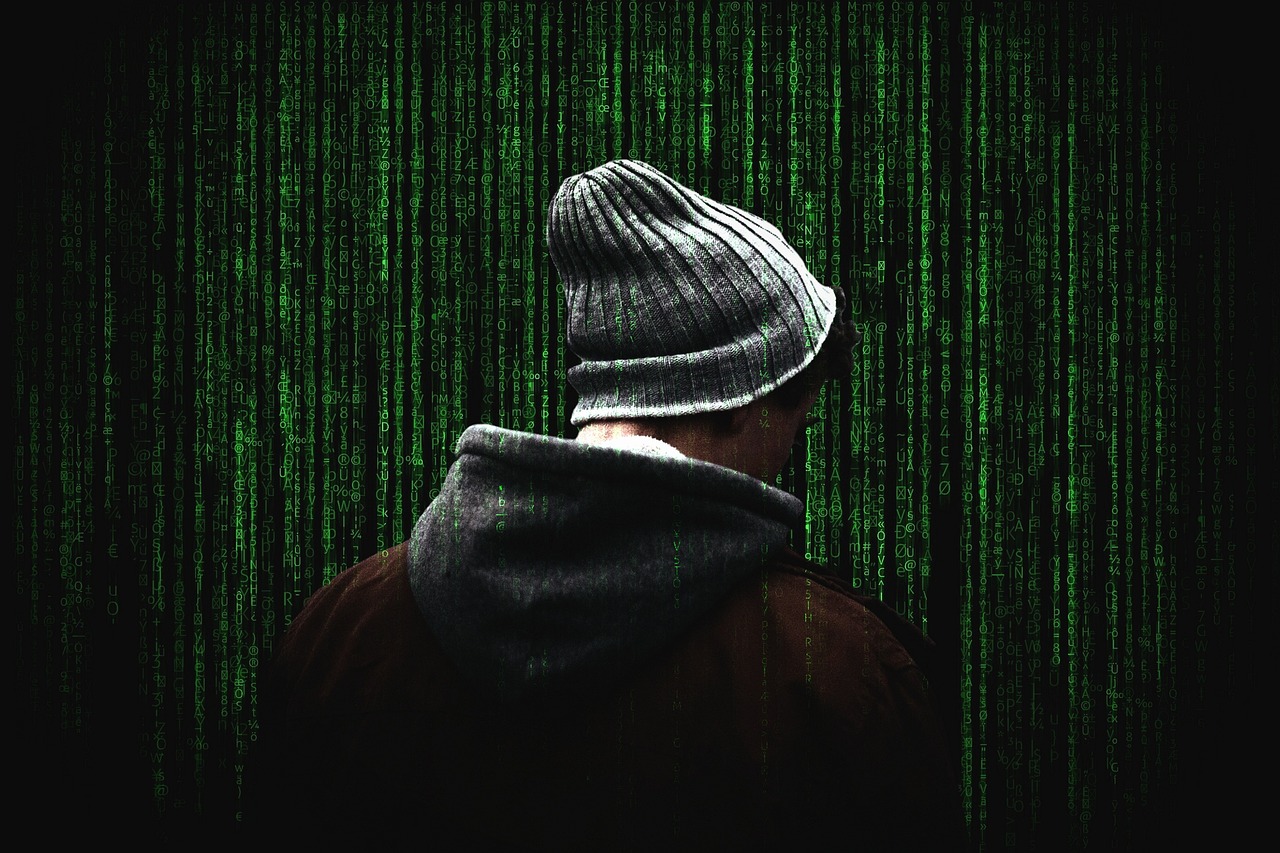
Blockchain for Secure Transactions
In today's fast-paced digital world, the hospitality industry is increasingly relying on technology to enhance customer experiences and streamline operations. One of the most revolutionary technologies making waves is blockchain. Imagine a secure, transparent ledger that records every transaction made, ensuring that sensitive customer data is not only protected but also easily accessible to authorized parties. This is the essence of blockchain technology, which can transform the way hotels handle transactions.
Blockchain operates on a decentralized network, meaning that data is stored across multiple locations rather than a single server. This significantly reduces the risk of data breaches, as hackers would need to compromise numerous systems simultaneously to access sensitive information. For hotels, this translates into enhanced security for transactions, guest information, and payment processes. By utilizing blockchain, hotels can ensure that every booking and transaction is recorded in an immutable ledger, making it nearly impossible for cybercriminals to alter or manipulate data.
Another remarkable aspect of blockchain is its ability to enhance transparency. Guests can have peace of mind knowing that their personal information and payment details are safe. When a hotel adopts blockchain technology, it can provide customers with a clear view of how their data is being used and stored. This transparency fosters trust, which is essential in the hospitality sector, where customer loyalty is paramount.
Furthermore, blockchain can streamline payment processes. Traditional payment systems often involve multiple intermediaries, which can lead to delays and added fees. With blockchain, transactions can be processed directly between parties, eliminating the need for intermediaries and reducing transaction costs. This not only speeds up the payment process but also enhances the overall guest experience, allowing for quicker check-ins and check-outs.
To illustrate the benefits of blockchain in the hospitality sector, consider the following table that compares traditional payment processes with blockchain-enabled transactions:
| Aspect | Traditional Payment Process | Blockchain Payment Process |
|---|---|---|
| Transaction Speed | Can take several days | Instantaneous |
| Intermediaries | Multiple (banks, payment processors) | Direct (peer-to-peer) |
| Fees | Higher due to intermediaries | Lower or negligible |
| Data Security | Vulnerable to breaches | Highly secure and immutable |
In conclusion, the integration of blockchain technology into the hospitality industry offers a myriad of benefits, from enhanced security and transparency to streamlined payment processes. As hotels continue to embrace digital transformation, blockchain stands out as a game-changer, ensuring that both guests and businesses can engage in transactions with confidence. The future of secure transactions in hospitality is not just bright; it's revolutionary.
- What is blockchain technology?
Blockchain is a decentralized digital ledger that records transactions across multiple computers, ensuring security and transparency. - How does blockchain enhance security in hospitality?
By storing data across a decentralized network, blockchain reduces the risk of data breaches and unauthorized access. - Can blockchain speed up payment processes?
Yes, blockchain enables direct peer-to-peer transactions, eliminating intermediaries and allowing for instantaneous payments. - Is customer data safe with blockchain?
Absolutely! Blockchain encrypts data and ensures that it remains immutable, providing a high level of security for sensitive information.
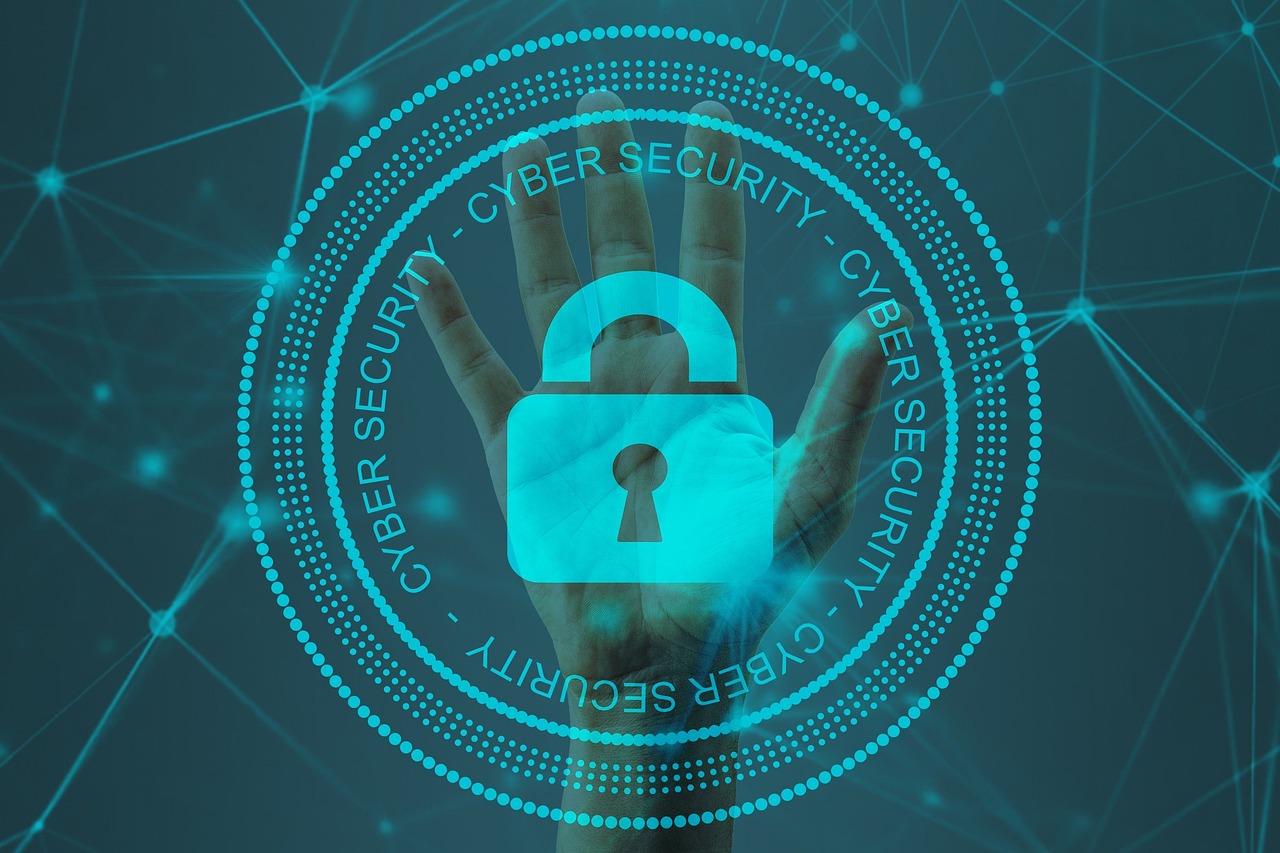
Regulatory Compliance and Cybersecurity
Understanding and adhering to regulatory compliance is critical for hotels to avoid penalties and protect customer data. With the increasing number of cyber threats, regulatory bodies have established guidelines to safeguard sensitive information and ensure that businesses take necessary precautions. Compliance not only helps in building trust with customers but also shields hotels from hefty fines and legal repercussions.
Two of the most significant regulations affecting the hospitality industry are the General Data Protection Regulation (GDPR) and the Payment Card Industry Data Security Standard (PCI DSS). These regulations set stringent requirements for how hotels manage and protect customer data, and failing to comply can have dire consequences.
The GDPR, established by the European Union, lays down strict guidelines for data protection and privacy. It mandates that hotels implement robust cybersecurity measures to safeguard personal data. This includes ensuring that customer consent is obtained before collecting data, providing transparency on how data is used, and allowing customers to access or delete their information upon request. Non-compliance can lead to fines of up to €20 million or 4% of a company’s annual global turnover, whichever is higher. Such penalties can severely impact a hotel's financial stability and reputation.
For hotels that handle credit card transactions, compliance with PCI DSS is essential. This set of security standards is designed to protect card information during and after a financial transaction. Hotels must implement necessary security measures, such as:
- Encrypting cardholder data
- Maintaining a secure network
- Regularly monitoring and testing networks
- Implementing strong access control measures
Failure to comply with PCI DSS can result in fines, increased transaction fees, or even the loss of the ability to process credit card payments, which can be devastating for a hotel’s operations.
In summary, regulatory compliance is not just a legal obligation; it is a vital component of a hotel’s cybersecurity strategy. By understanding and implementing the necessary measures to comply with GDPR and PCI DSS, hotels can significantly reduce their risk of data breaches and enhance their reputation in the eyes of customers.
What is the purpose of GDPR?
GDPR aims to protect the personal data of individuals within the EU by establishing strict guidelines for data collection and processing.
What are the consequences of failing to comply with PCI DSS?
Failure to comply with PCI DSS can lead to fines, increased transaction fees, and the potential loss of the ability to accept credit card payments.
How can hotels ensure compliance with these regulations?
Hotels can ensure compliance by regularly updating their cybersecurity measures, providing employee training, and conducting audits to assess their data protection practices.
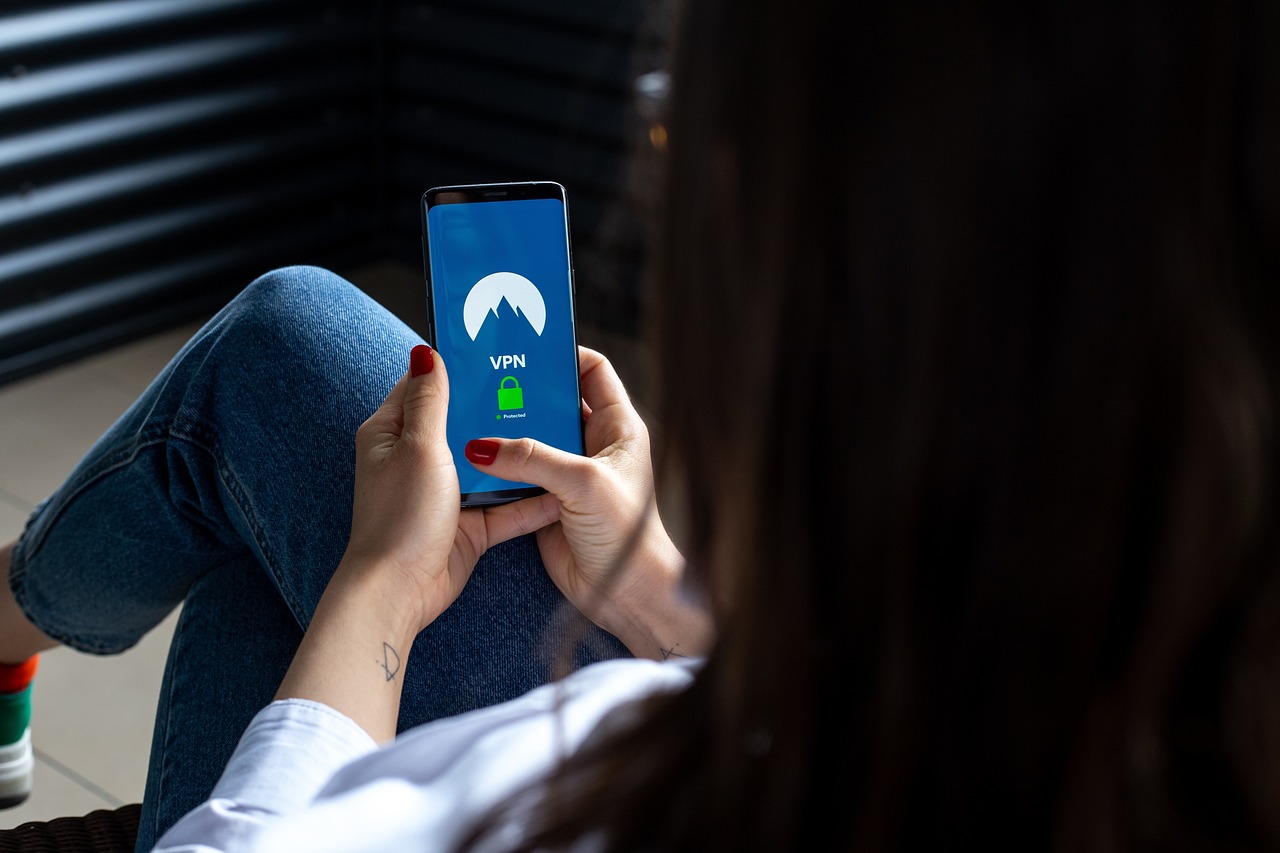
General Data Protection Regulation (GDPR)
The is a landmark legislation in the European Union that came into effect on May 25, 2018. It was designed to enhance the protection of personal data for individuals within the EU and the European Economic Area. For the hospitality industry, compliance with GDPR is not just a legal obligation but a fundamental aspect of maintaining customer trust and safeguarding sensitive information. Hotels and other hospitality businesses must understand the implications of GDPR, as it requires them to implement stringent measures to protect personal data.
At its core, GDPR emphasizes the importance of transparency and accountability in how organizations handle personal data. This means that hotels must inform their guests about what data is being collected, how it will be used, and who it will be shared with. Failure to comply with GDPR can result in hefty fines, which can be up to €20 million or 4% of the company’s global annual turnover, whichever is higher. This makes it imperative for hotels to integrate GDPR compliance into their cybersecurity strategies.
Here are some key principles of GDPR that hotels should keep in mind:
- Data Minimization: Hotels should only collect personal data that is necessary for their operations and ensure it is relevant and limited to what is required.
- Consent: Explicit consent must be obtained from guests before collecting their personal data, and they should have the option to withdraw that consent at any time.
- Right to Access: Guests have the right to request access to their personal data, and hotels must provide this information in a clear and understandable format.
- Data Breach Notification: In the event of a data breach, hotels are required to notify the relevant authorities within 72 hours, as well as inform affected individuals without undue delay.
To ensure compliance, hotels should conduct regular audits of their data handling practices, implement robust data protection policies, and provide comprehensive training for staff on GDPR requirements. Additionally, investing in advanced cybersecurity measures, such as data encryption and secure data storage solutions, can significantly reduce the risk of data breaches and enhance overall compliance.
In conclusion, navigating the complexities of GDPR can be daunting for hotels, but it is essential for protecting customer data and ensuring the long-term success of the business. By prioritizing GDPR compliance, hotels not only fulfill their legal obligations but also foster a culture of trust and security that can set them apart in a competitive industry.
1. What is GDPR?
GDPR stands for General Data Protection Regulation, a regulation in EU law on data protection and privacy for all individuals within the European Union and the European Economic Area.
2. What are the penalties for non-compliance?
Penalties for non-compliance can reach up to €20 million or 4% of a company's global annual turnover, whichever is higher.
3. How can hotels ensure compliance with GDPR?
Hotels can ensure compliance by implementing robust data protection policies, conducting regular audits, training staff, and utilizing advanced cybersecurity measures.
4. What rights do individuals have under GDPR?
Individuals have several rights under GDPR, including the right to access their personal data, the right to rectification, the right to erasure, and the right to data portability.

Payment Card Industry Data Security Standard (PCI DSS)
The is a crucial set of guidelines designed to ensure that all companies that accept, process, store, or transmit credit card information maintain a secure environment. For hotels, which often handle numerous transactions daily, compliance with PCI DSS is not just a regulatory requirement; it's a fundamental aspect of protecting both the business and its guests. Non-compliance can lead to severe penalties, including hefty fines and a loss of reputation, which can be devastating in the hospitality industry.
To comply with PCI DSS, hotels must adhere to a series of requirements that are categorized into six major objectives. These objectives aim to build and maintain a secure network, protect cardholder data, maintain a vulnerability management program, implement strong access control measures, regularly monitor and test networks, and maintain an information security policy. Let's break these down further:
| PCI DSS Objectives | Description |
|---|---|
| Build and Maintain a Secure Network | Install and maintain a firewall configuration to protect cardholder data. |
| Protect Cardholder Data | Encrypt transmission of cardholder data across open and public networks. |
| Maintain a Vulnerability Management Program | Use and regularly update anti-virus software or programs. |
| Implement Strong Access Control Measures | Restrict access to cardholder data by business need to know. |
| Regularly Monitor and Test Networks | Track and monitor all access to network resources and cardholder data. |
| Maintain an Information Security Policy | Develop and maintain a policy that addresses information security for employees and contractors. |
Compliance with PCI DSS not only helps hotels protect sensitive customer information but also enhances customer trust. Guests are more likely to choose a hotel that demonstrates a commitment to safeguarding their financial data. With the rise of digital payments and online bookings, hotels must prioritize these security measures to stay competitive and secure.
Moreover, it’s important for hotels to conduct regular audits and assessments to ensure ongoing compliance with PCI DSS. This involves evaluating current security measures, identifying vulnerabilities, and implementing necessary changes. Regular training sessions for staff on the importance of PCI compliance and best practices can further strengthen the hotel's security posture.
In summary, adhering to PCI DSS is essential for hotels to protect their guests' financial information and maintain a solid reputation in the hospitality industry. By implementing these standards, hotels not only comply with regulations but also foster a secure environment that enhances guest trust and loyalty.
- What is PCI DSS? - PCI DSS stands for Payment Card Industry Data Security Standard, which provides guidelines for securing credit card transactions.
- Why is PCI DSS important for hotels? - It helps protect sensitive customer information, ensures regulatory compliance, and builds trust with guests.
- What are the consequences of non-compliance? - Non-compliance can lead to fines, penalties, and damage to the hotel's reputation.
Frequently Asked Questions
- What is the significance of cybersecurity in the hospitality industry?
Cybersecurity is crucial in the hospitality sector as it protects sensitive customer data, maintains trust, and ensures compliance with regulations. A strong cybersecurity framework safeguards a hotel's reputation and financial stability, making it essential for the overall success of the business.
- What are the common cyber threats faced by hotels?
Hotels encounter various cyber threats, including phishing attacks, ransomware, and data breaches. Recognizing these risks is vital for developing effective strategies to mitigate potential damage and protect sensitive information.
- How can hotels protect themselves from phishing attacks?
Hotels can protect themselves from phishing attacks by training employees to recognize suspicious emails and messages. Implementing advanced email security measures, such as spam filters and authentication protocols, can also significantly reduce the risk of falling victim to these scams.
- What best practices should hotels follow for cybersecurity?
Hotels should implement best practices such as regular software updates, employee training on cybersecurity awareness, and robust data encryption techniques to secure sensitive information. These measures create a strong defense against potential cyber threats.
- How does technology play a role in enhancing cybersecurity?
Emerging technologies like AI and machine learning can analyze large datasets to detect unusual patterns and potential threats, enabling hotels to respond proactively. Additionally, blockchain technology offers secure methods for processing transactions, enhancing data protection and trust.
- What regulations should hotels comply with regarding cybersecurity?
Hotels must adhere to regulations such as the General Data Protection Regulation (GDPR) and the Payment Card Industry Data Security Standard (PCI DSS). Compliance with these regulations is essential to avoid penalties and ensure the protection of customer data.

